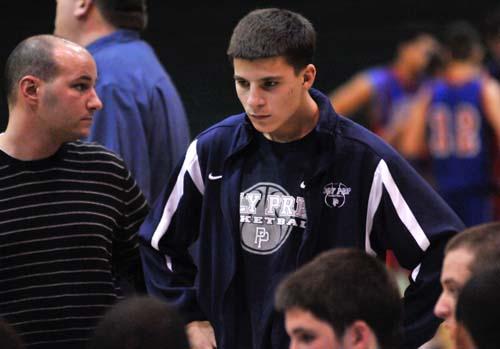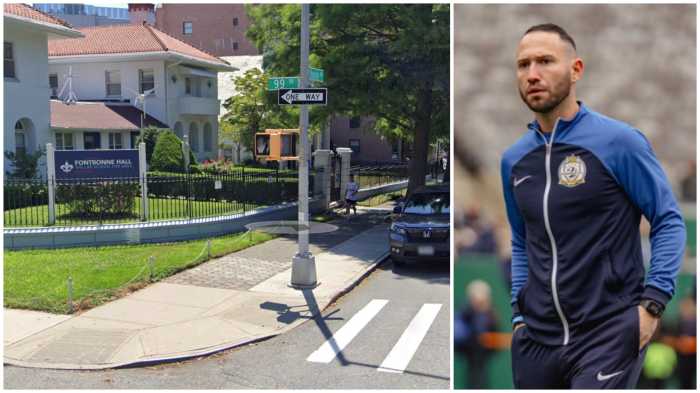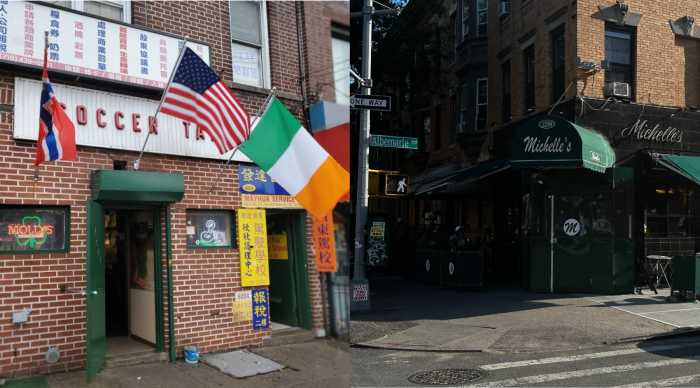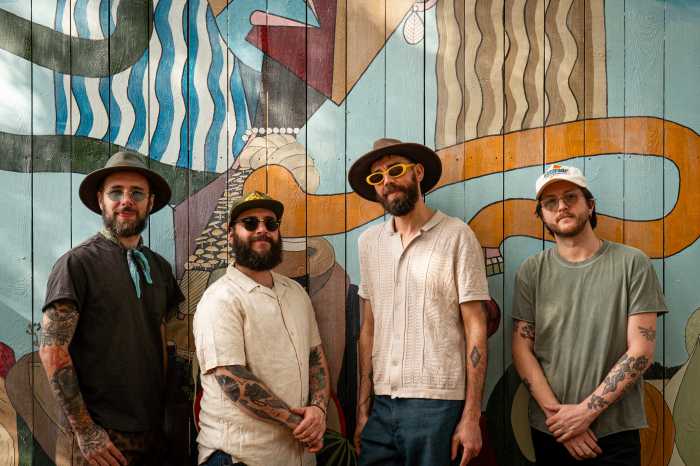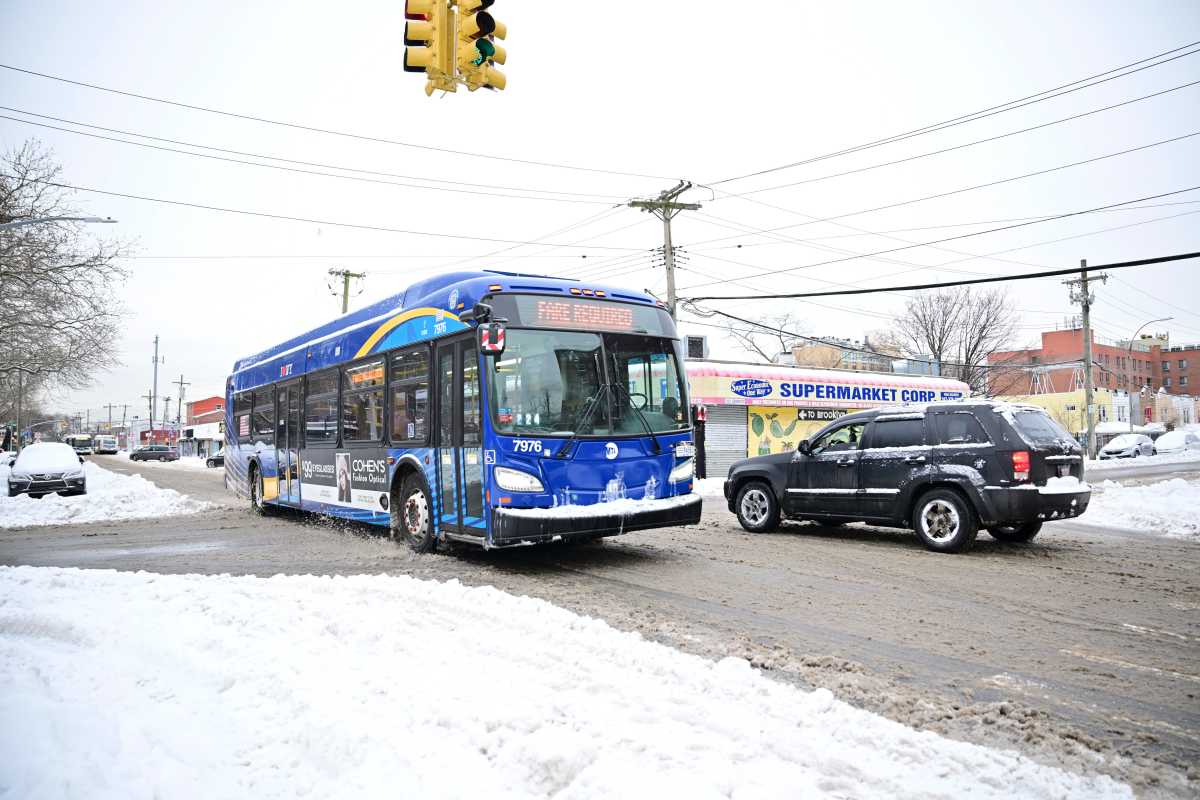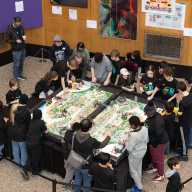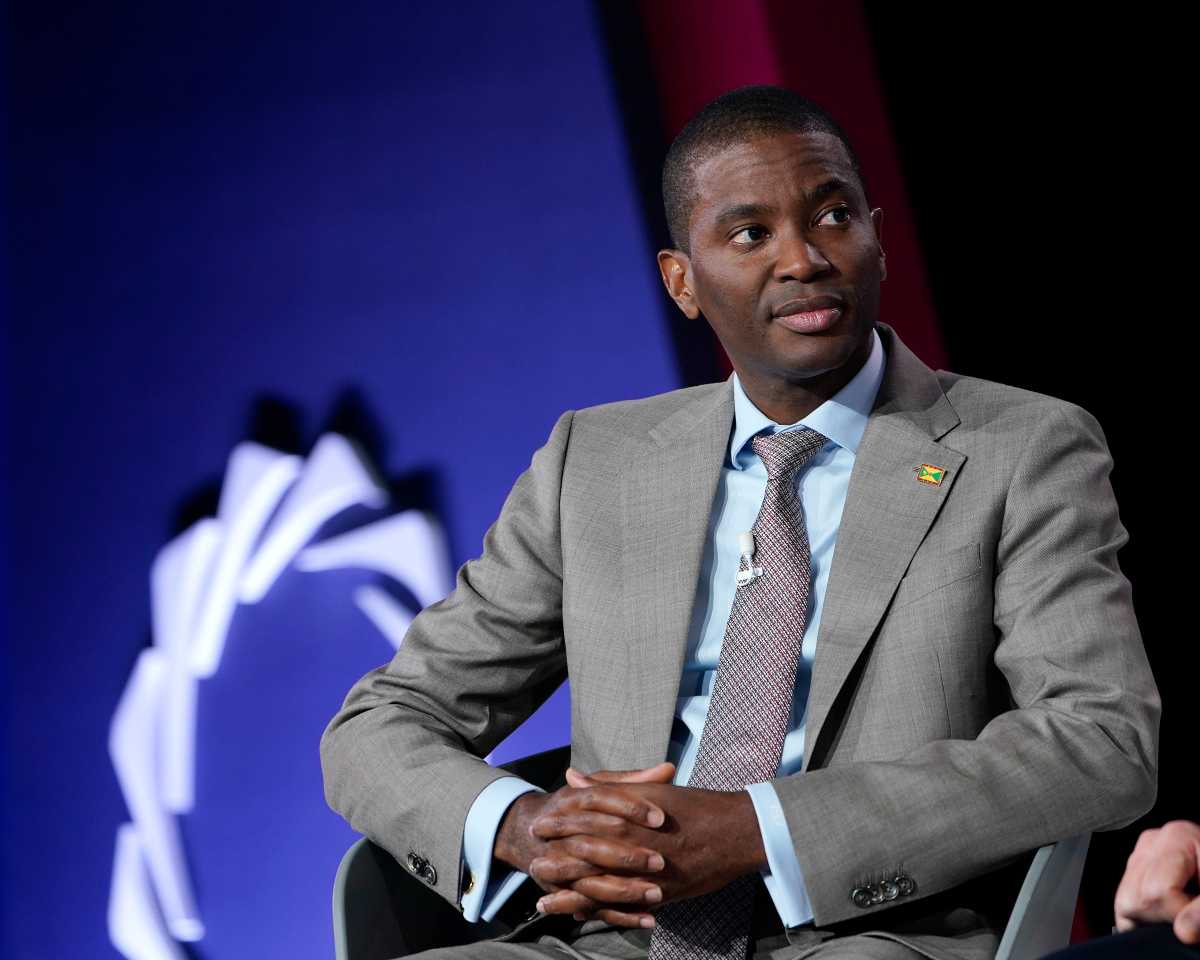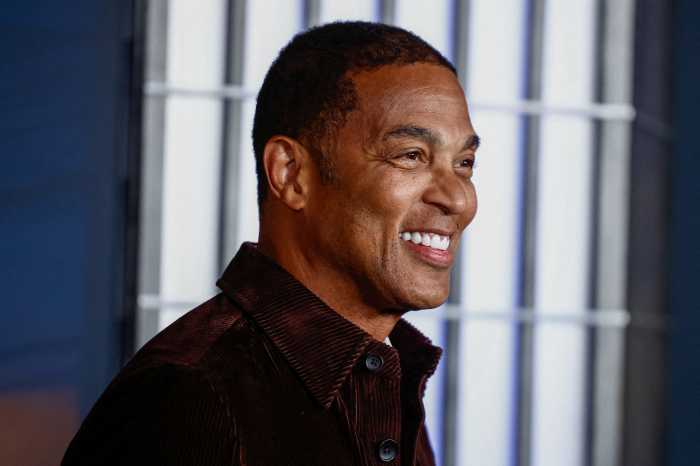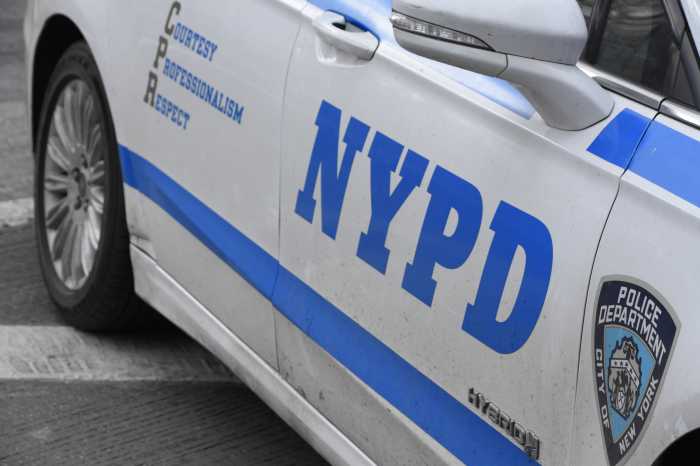Stephen Lazzaro walks with haste, his tie swings side to side. When he talks, there is no pause, no little hint of a problem. He appears healthy, the normal 17-year-old senior.
His current state is astounding, considering where he came from a little over a month ago. The starting point guard on the Poly Prep boys’ basketball team, who was planning to play basketball at Haverford College, a Division III school in Pennsylvania, laid motionless, his heart stopped on a court in northern New Jersey.
“I died and came back to life in my mind,” Lazzaro says. “I feel lucky, knowing I was so close.”
Lazzaro, who suffers from aortic stenosis – which abnormally narrows the valve pumping blood from the left ventricle to the arteries, therefore restricting circulation from the heart to the rest of the body – went into seizures and collapsed on the court. His condition, combined with extreme exercise, likely produced arrhythmia, and ensuing cardiac arrest.
His father, Dr. Douglas Lazzaro, the chairman of ophthalmology at SUNY Downstate Medical Center, aided by another parent, Dr. Sampath Kumar, a general vascular surgeon at Lutheran Medical, revived him with the aid of a nearby defibrillator and CPR methods. It was a crazy scene, many on hand said, players and parents praying as the two doctors furiously worked on the fallen teen.
***
The day is Jan. 24. Like he did on so many other winter afternoons, Lazzaro is going to play basketball, against the Delbarton School (N.J.) despite an intense cold he had been fighting for weeks. When he gets to the gym, Lazzaro forgets about his respiratory problems and sore throat.
“It felt like just any other game,” he says.
Quickly, that changes. His chest is hurting, like someone is pushing against it, the same sensation he felt in a December tournament in Fort Lauderdale, Fla., causing him to miss one game.
It prevents Lazzaro from guarding his man full court – one of his staples. Poly Prep coach Billy McNally switches him to another guard, a less explosive one.
“I’m quite stubborn,” Lazzaro says. “I wanted to see if it would go away.”
It doesn’t. McNally pulls him out late in the first quarter, another rarity. Lazzaro usually plays every minute. In the short break between periods, as the coach addresses his players, Lazzaro’s entire body goes into violent, uncontrollable convulsions.
McNally immediately calls out for Lazarro’s father, who was joined by Kumar. They lay Lazzaro, unconscious at this point, on the floor. He has no pulse.
“I’m in a state of shock,” Douglas Lazzaro recalls. “I know this is not a fainting episode, it’s cardiac arrest.”
At Douglas Lazzaro’s request, Kumar starts compressions on his son’s chest while Lazzaro begins giving his son mouth to mouth. McNally and Delbarton coach Dan Whalen retrieve the defibrillator. Everyone is still. Players, arms interlocking, are praying.
One of Lazzaro’s best friends, Max Warner, walks to the other side of the court, unable to look at the traumatic scene. Lazzaro’s mother, Anna, is screaming in agony.
“It was traumatizing,” Michael Kumar says. “We were all practically crying.”
Ninety seconds later, the defibrillator arrives and is hooked up to an electric socket. It determines Lazzaro’s heart is beating, but not rhythmically. They deliver a shock to his heart. He awakens, going into more seizures, even more violent ones, as Douglas Lazzaro cradles him in his arms. Stephen is disoriented, wildly waving his arms and gets up. He is held down. Eventually, he calms down.
“Did we win the game?” are his first words.
“It was very intense,” McNally says. “The doctors were fantastic, the trainer was fantastic, the coaches were great. Everybody did their job. … There was no panic. It was more like: ‘You’re trained with this equipment, you’re trained to do these things, let’s go do what we’re supposed to do.’”
“If we didn’t have the defibrillator, Steve wouldn’t be with us today,” his father adds. “It started out as a very horrible situation and turns into a miracle. I think God was sitting with us.”
***
Dr. Jeffrey Borer, chief of the division of cardiovascular medicine at SUNY Downstate Medical Center, said it was a case of the right people surrounding Lazzaro at the right time. When someone goes into cardiac arrest, that person’s survival depends on how quickly they receive help.
“In a very short interval, the likelihood of resuscitation is high,” Borer says.
Lazzaro was told by doctors at Columbia Presbyterian Children’s Hospital, where he spent six days following the episode, that he can never play competitive sports again.
An Internal Cardiac Defibrillator, which works like a defibrillator and pacemaker, was put into his chest to maintain a normal heart rate. If he ever develops another abnormal rhythm, the device can speed up his heart rate if it drops beneath a certain point by delivering a shock to his system.
According to his father, doctors lauded his recovery – he has all his motor functions working at full capacity.
“They call them the miracle kid at Columbia,” Douglas Lazzaro says. “They have not seen a kid that made such a major recovery from cardiac arrest with no real problems other than to have a couple of procedures.”
***
Stephen Lazzaro was extremely motivated to lead Poly Prep to Glens Falls for the state Federation tournament, a year after the team fell just short, losing in the NYSAIS state tournament championship game to Collegiate.
The 5-foot-9 guard led his team to an 8-3 mark before the traumatic event, serving as one of the Blue Devils’ top scorers, their lockdown defender and floor general. Since Jan. 24, they have won just four times in 11 games.
“He used every ounce of energy to play the game of basketball,” Haverford men’s basketball coach Mike Mucci said. “When the ball was in his hands, you just felt really comfortable. He made good decisions, he took care of the ball and he got his teammates involved.”
Lazzaro hasn’t detached himself from the sport he fell in love with at a young age. Forced to trade in his jersey, shorts and sneakers, he now dons a dress shirt, tie, slacks and shoes to games, serving as an assistant coach.
He attends every practice, working with his replacements, Warner and freshman Stephen Reyes. He suggests where to attack a defense, how to break a zone, why to pass through it instead of around it.
Warner and Lazzaro played together in the backcourt since they were freshmen. Warner said he learned a lot from his teammate even before he became a coach, particularly regarding his body language. Lazzaro never let down, never showed a different temperament. Warner was the emotional type.
“He really taught me how to handle myself on the court and be a better person on the court,” Warner said. “Guys can really feed off that.”
“I’ve never run the point,” he added. “He’s helped me so much.”
Warner and McNally see coaching in Lazzaro’s future. So does Mucci.
“He’s already going to be a part of the basketball family at Haverford,” the coach said.
Lazzaro says he sees the game differently from the bench. It is difficult, he laments, not being there to help his teammates. But he wants to be around the game. Warner views that inspiration off the court, too, how Lazzaro has dealt with his near-death experience.
Once he was released from the hospital, Lazzaro was back with the team almost immediately, in every huddle, talking to Warner for hours every night. At the end of each conversation, Lazzaro repeats the phrase he would always use.
“We can still do it,” Lazzaro tells him after losses. “We can still get to Glens Falls. We can still win the state championship.”
“It’s probably the most touching thing I ever heard,” the senior recalls, his voice cracking.
***
The poem Lazzaro read, the Poly Prep family says, was a moment that won’t be forgotten. The Bay Ridge school hosts a Town Hall-like gathering twice a week. The entire school meets in the auditorium.
During a pep rally shortly after Lazzaro was released, Warner called him on his cell phone and put it on speaker as the entire school chanted his name. Later that day, Lazzaro e-mailed Bud Cox, Dean of the Upper School, asking if he could address his fellow students at the next chapel.
“The main thing I was trying to get across was don’t take things for granted,” he says. “You never know when good things are going to end. Appreciate what you have.”
The night he collapsed, Lazzaro penned a poem — the first one he said he ever completed — entitled “8 Seconds Long.”
24th of the first a Saturday night
From sleeping to awake or death back to life
An eternity lasted for 8 seconds long
My heart stopped beating; I could not hold on
My spirit seemed gone, death stared me down
My time was up, in darkness I drowned
But the story didn’t end, a miracle came
A new chapter started, my fate chose to change
Conscious and revived, alive once more
Stand up, see people, and rise up from the floor
Athletics became impossible but my appreciation spread
When God decided my destiny was to rise from the dead
Family and friends helped guide me through
My second birth’s greeting was “Steven we’re here for you”
My clock chose to stop for 8 seconds long
But love carried me through and allowed me to hold on
There was barely a dry eye in the crowd of 500.
“He’s an intelligent kid and reflectful; that came through,” McNally says. “It was a very powerful moment. … It didn’t really sink in for me until a little later. It was surreal, the whole thing.”
“It was very moving,” Warner adds. “I asked him for a copy right away.”
Says Michael Kumar: “It was beautiful. It made me choke up.”
***
Lazzaro’s life has changed, he admits. He isn’t spending all his time on a basketball court or a weight room. He is playing video games more often, an hour more of Halo 3 per day. He has stopped watching basketball on television as frequently. A New York Knicks fan, he purposely avoided a recent game, yet when told they won a recent game, he couldn’t hide his excitement.
“I feel nostalgic,” he says. “If I watch basketball, I’m gonna be glued to the screen. I’ll be watching games all night.”
If anything, Lazzaro says he has become more patient with others. Little things that used to bother him – like his mother incessantly calling him or an annoying classmate – he brushes off.
“I try to act more mature – like a man,” he says.
Lazzaro wants to use his experience to help others. With help from his father, he has established the Stephen Lazzaro Cardiovascular Fund to enhance research on arrhythmia and heart valve disease. In fact, his father says, it was one of the first things he mentioned after the procedures were completed at Columbia Presbyterian Children’s Hospital.
His is an attitude that amazes those close to him. Kumar, the reserve guard, said he would be depressed. Warner isn’t sure how he would react, but he said it wouldn’t be so positive. Lazzaro’s father isn’t quite as surprised; his son has always been full of life, a positive soul.
“He’s doing much better than I would be doing,” Douglas Lazzaro says. “I’m really proud of the kid.”
Stephen Lazzaro Cardiovascular Fund
www.downstate.edu/giving
(718) 270-4418


